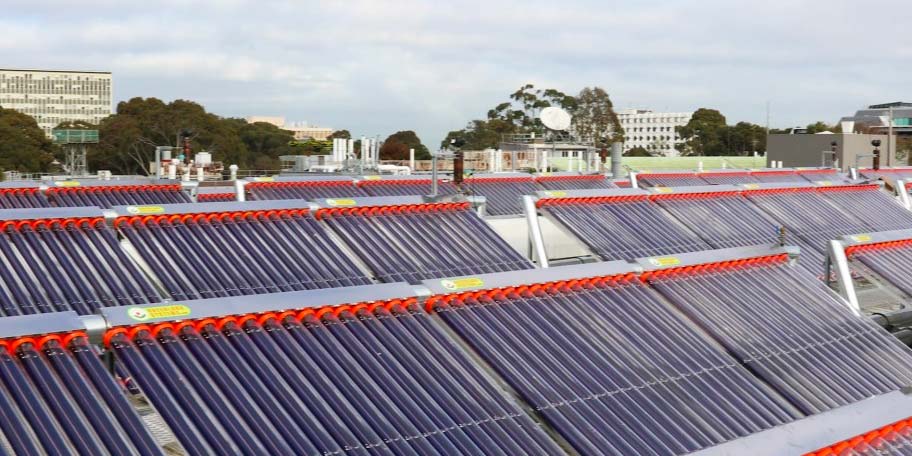The district heating system of Clermont Ferrand (Puy-de-Dôme), La Gauthière area
The operating company Clervia, subsidiary of Dalkia, operates this 5 km district heating system. It provides 38 140 MWh of heat per year of which 65,5 % comes from biomass and 34,5 % from natural gas with a part of cogeneration. This heating network is part of a blueprint process initiated to study development paths such as increasing the share of renewable energy, extension or interconnections with other systems. The case study for the integration of solar thermal energy in this heating network, proposed within the SDHp2m project, totally fits in within the development approach already initiated.
The district heating system of Chambéry (Savoie)
The operating company SCDC, subsidiary of Engie Réseaux, operates this district heating system of 51 kilometers. It provides 208 836 MWh of heat per year of which 28 % comes from biomass, 27 % from the energy recovery unit and 45 % from natural gas. The area selected for the case study is the neighborhood of « Croix Rouge » equipped with its own biomass and gas heating plant providing 32 GWh/h of heat (not connected to the energy recovery unit) . This study strengthens the TEPOS (Positive energy territory) approach in which one of the strategic axes is the development of district heating systems using renewable energy.

The district heating system of Pelussin (Loire)
The SIEL, Territoire d’Energie Loire (trade union for energies that operates throughout the Loire department), is responsible for the management of biomass district heating systems for local authorities. The SIEL is in charge of the studies, invests and maintains all the equipment. The local authority reimburses the investment in the form of a rent and is responsible for its biomass supply. The district heating system of Pélussin, operating since 2009 is 1,8 km long. It supplies public buildings as well as individual and collective housing on a ZAC (joint development zone). The 450 kW heating plant provides 1 000 MWh per year (88 % of heat coming from biomass and 12% from propane). Private housing requires an important supply of domestic hot water during the summer, which is essentially provided by an auxiliary propane boiler. The use of thermal solar energy could significantly reduce the consumption of this non-renewable energy.
In 2014, the SIEL has implemented on behalf of the municipality a second biomass district heating system, with equivalent power, to supply about 20 000 m² of public buildings in another area. In the Loire department, the SIEL has already implemented 46 biomass district heating plants. The feasibility studies will be carried out during the summer and the first results will be available in September 2017.
District heating operators who are interested in the topic of solar thermal energy integration can contact the SDHp2m team for a first level of information and referral. Furthermore, ADEME (The French Environment & Energy Management agency) can also finance these case studies.
Mathieu Eberhardt – RhônAlpEnergie Environnement
Alexis Pellat – Region Auvergne Rhône Alpes
Cédric Paulus – INES CEA
